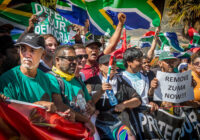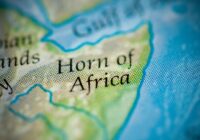Refugees fleeing Boko Haram are using the internet for the first time in their lives to further their education.
Since its emergence in Nigeria’s northeast in 2002, the radical Islamist group Boko Haram has wreaked havoc across the country, leading the government to declare an emergency in Borno, Yobe and Adamawa states in 2013. Meaning “Western education is forbidden” in the local Hausa dialect, Boko Haram has targeted military and police facilities, churches, bars and the United Nations headquarters in the capital Abuja.
The group garnered wide attention following its abduction of 276 schoolgirls from the city of Chibok in 2014. Forced to convert to Islam and marry Boko Haram fighters, some 195 are still missing—January 2017 having marked 1,000 days since their kidnapping. While the Bring Back Our Girls campaign has drawn wide international attention, Amnesty International estimates that at least 2,000 women and girls were enslaved by the group in 2014 in more than 40 different instances.
The crisis has displaced over 2.5 million people in the Lake Chad region, with almost half the schools in Borno State closed due to the violence. In one school in northern Cameroon, nearly one-third of students are refugees. And, having only learned about the World Wide Web in theory, they are about to use the internet for the first time in their lives.
The views expressed in this article are the author’s own and do not necessarily reflect Fair Observer’s editorial policy.
Photo Credit: karelnoppe
Support Fair Observer
We rely on your support for our independence, diversity and quality.
For more than 10 years, Fair Observer has been free, fair and independent. No billionaire owns us, no advertisers control us. We are a reader-supported nonprofit. Unlike many other publications, we keep our content free for readers regardless of where they live or whether they can afford to pay. We have no paywalls and no ads.
In the post-truth era of fake news, echo chambers and filter bubbles, we publish a plurality of perspectives from around the world. Anyone can publish with us, but everyone goes through a rigorous editorial process. So, you get fact-checked, well-reasoned content instead of noise.
We publish 2,500+ voices from 90+ countries. We also conduct education and training programs
on subjects ranging from digital media and journalism to writing and critical thinking. This
doesn’t come cheap. Servers, editors, trainers and web developers cost
money.
Please consider supporting us on a regular basis as a recurring donor or a
sustaining member.
Will you support FO’s journalism?
We rely on your support for our independence, diversity and quality.






